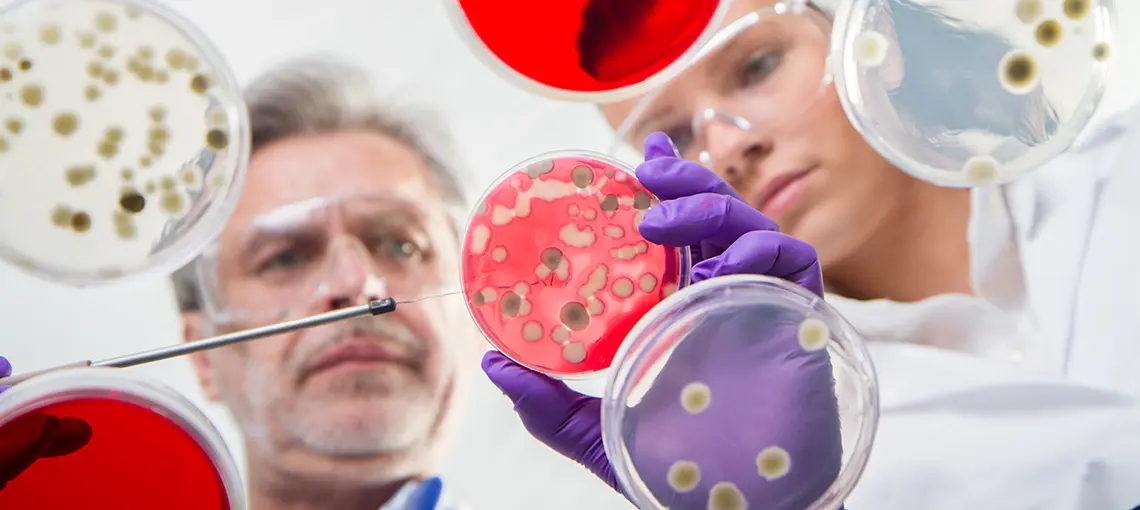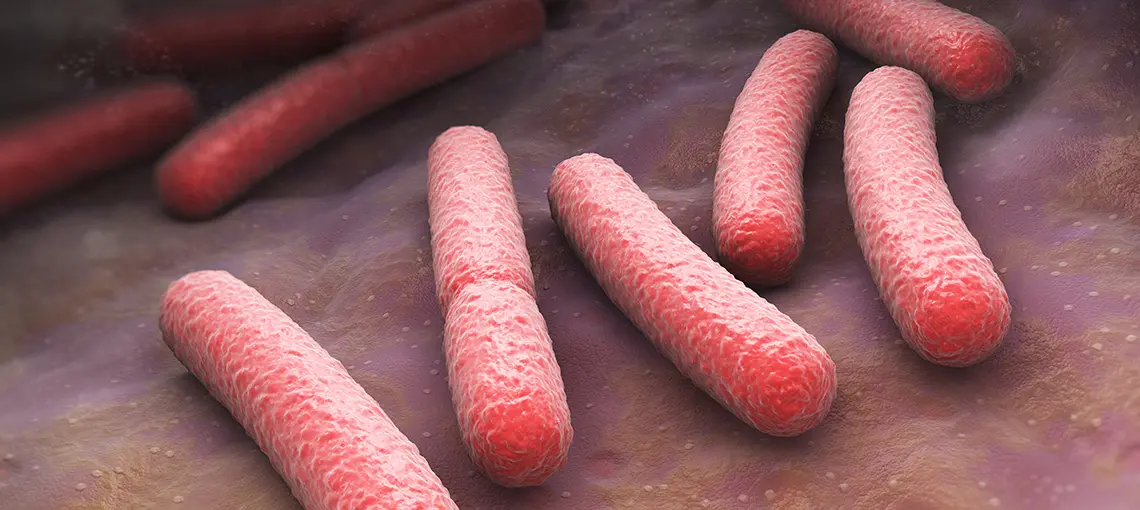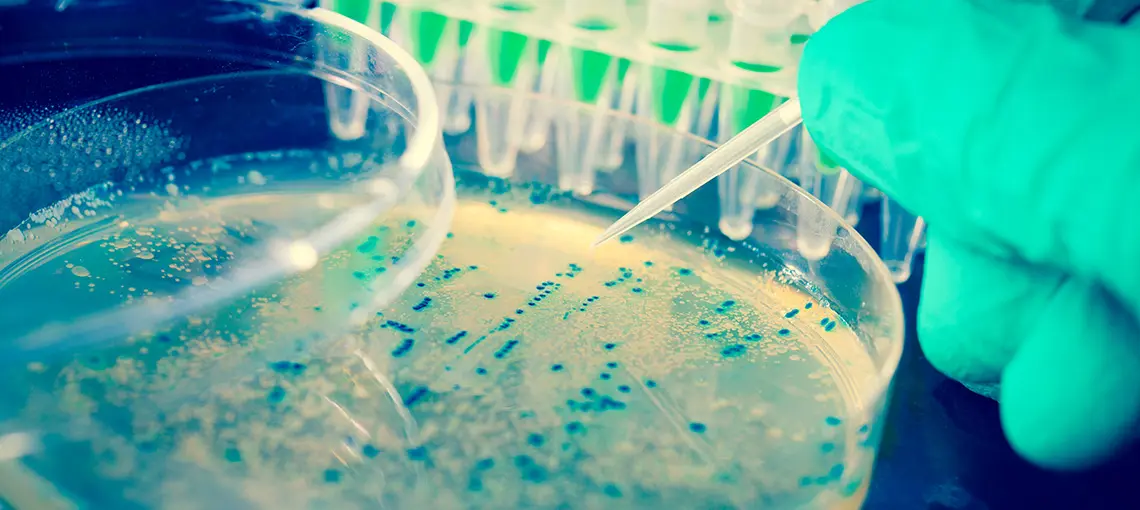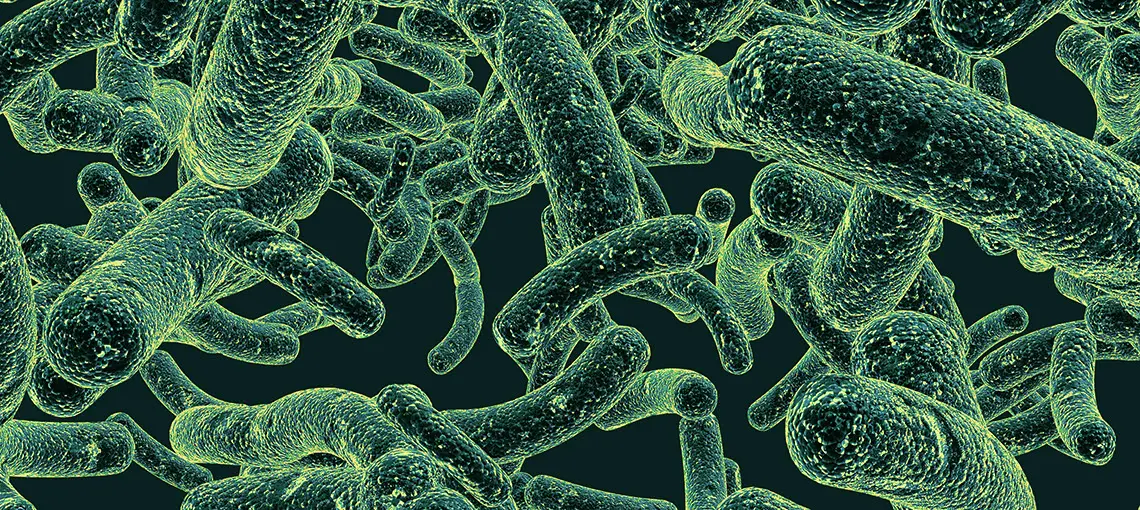Food Microbiology Research Group
Detection and control of food-borne pathogens
The Food Microbiology research group focuses on pathogenic microorganisms and spoilage germs which are relevant for the safe production of food. In this way, we contribute to increasing food safety in every category of food.
As part of our research projects, we are developing new molecular biological methods for the detection food-relevant bacteria. In addition, we are performing research into methods for reducing pathogenic microorganisms and spoilage germs, as well as also concentrating on new developments that minimize any influence on the properties of food. An essential part of our research is our work on bacteriophages, which we are establishing themselves in both the development of new detection methods, and the control of germ contamination in food.
The majority of our research projects are conducted in collaboration with partners from industry and science. Student projects are also integrated into our R&D programme in the form of semester papers, Bachelor’s and Master’s theses. As a certified laboratory, we also participate in ring tests, and are financed by organisations such as Swiss Food Research (SFR), Innosuisse and the Swiss National Science Foundation (SNF).
Fields of Research
Bacteriophages
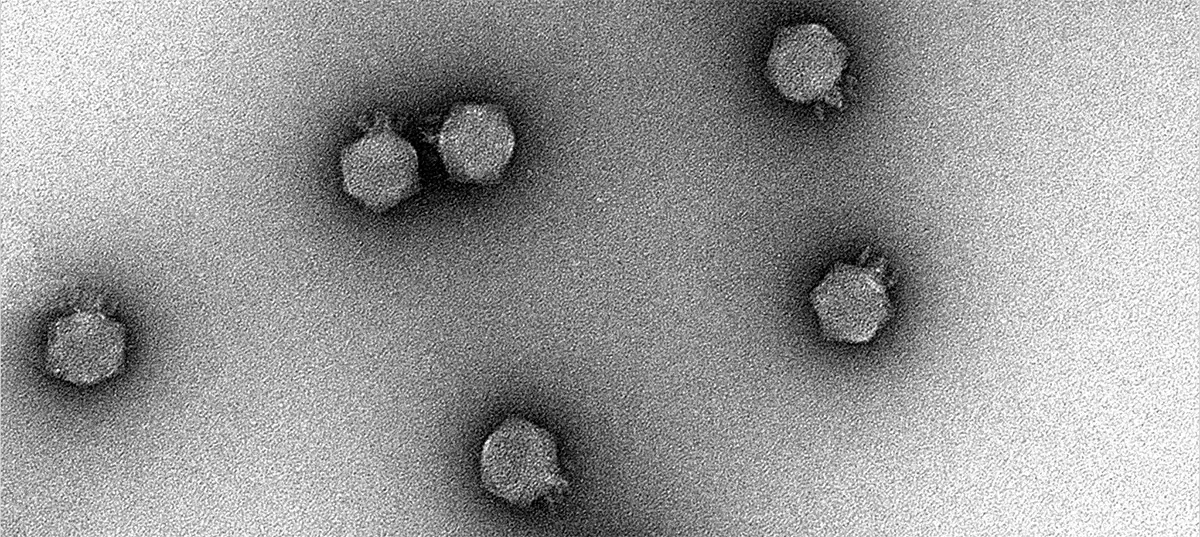
Bacteriophages are viruses that can specifically infect and thus inactivate individual bacterial species. Selected phage-isolates that are classified as ‘generally recognised as safe’ can be used as excipients in food to specifically inactivate pathogenic germs, such as Salmonella enterica or Listeria monocytogenes. Using phages has the advantage that the organoleptic properties of food are not altered. In terms of clean labelling, the use of bacteriophages can increase food safety. In our research projects we characterise new bacteriophages to control bacterial contamination in food.
Since phages can be highly host-specific, they are very well-suited to the development of new detection methods. Consequently, we are analysing phage proteins that are important for the specific adsorption of bacteria.
Challenge Tests

In challenge tests, food is deliberately contaminated with pathogenic microorganisms and/or spoilage germs in order to demonstrate the growth potential of these germs in selected products. Such tests are performed according to internationally recognised guidelines from accredited laboratories. This enables us to compare and evaluate methods for reducing the growth of bacteria. Challenge tests are also used to demonstrate the suitability of packaging for preserving food, and to investigate the effectiveness of bacteriophages or other natural substances in preventing the growth of pathogenic microorganisms. Our research includes every category of product.
New detection techniques
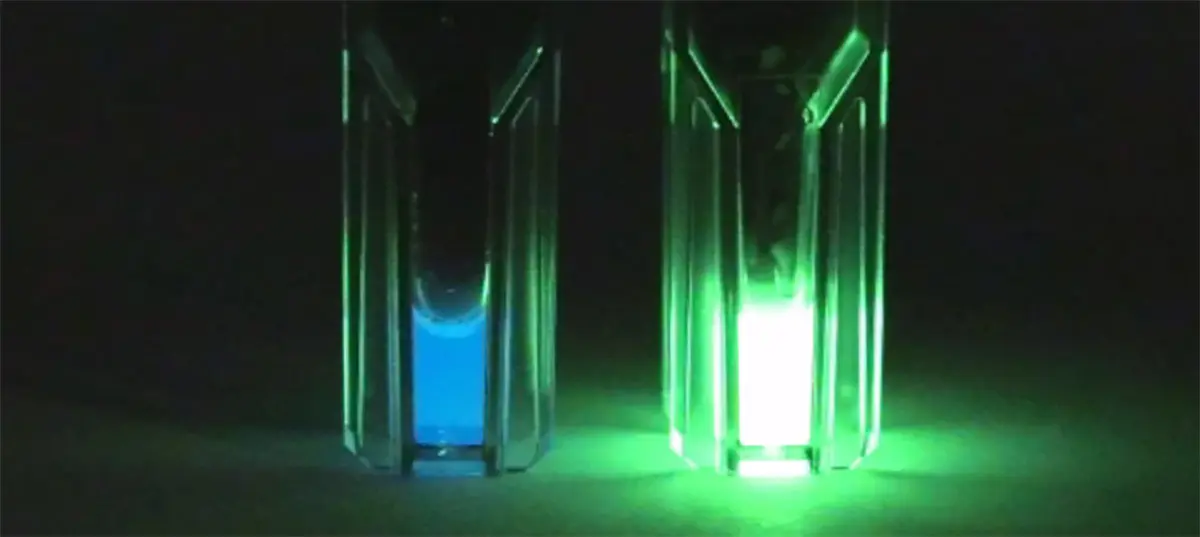
We apply ISO certified procedures for the detection of microorganisms. In addition, we are researching how new detection methods for the rapid and specific recognition of microorganisms can be developed on a molecular biological basis.
Characterisation of filamentous Bacillus spp.
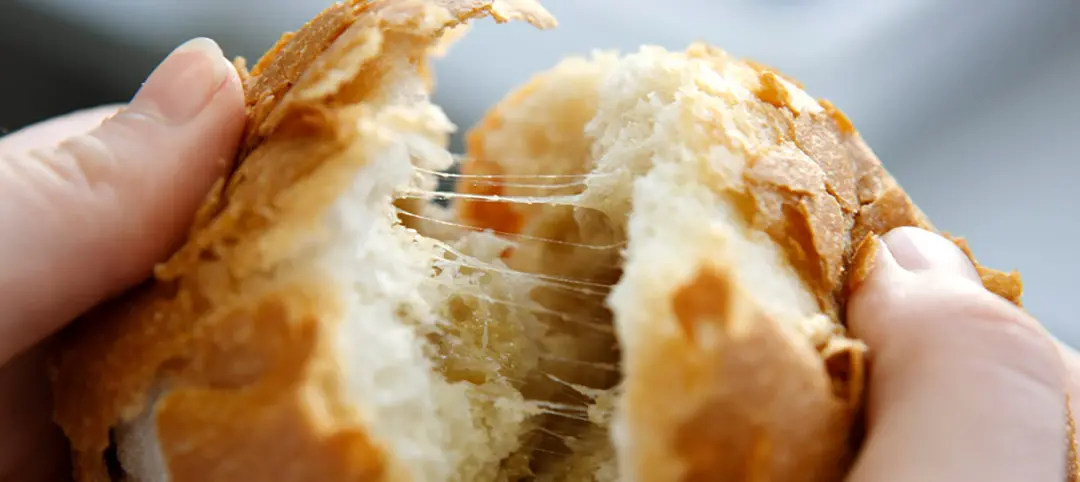
Roping is a form of spoilage in unleavened bakery products containing wheat flour that is caused by contamination with Bacillus spp. As a result, breadcrumbs develop a distinct discoloration and strong volatile off-flavours. The mechanics of rope spoilage are currently not well- defined, therefore at present, only back tests can determine whether a Bacillus isolate can cause rope spoilage or not. For this reason, we are working on identifying the factors and enzymes responsible for the development of roping in order to develop a specific detection method.
Publications
-
Turner, Dann; Adriaenssens, Evelien M.; Amann, Rudolf I.; Bardy, Pavol; Bartlau, Nina; Barylski, Jakub; Błażejak, Stanisław; Bouzari, Majid; Briegel, Ariane; Briers, Yves; Carrillo, Daniel; Chen, Xia; Claessen, Dennis; Cook, Ryan; Crisci, Marco A.; Dechesne, Arnaud; Deptula, Paulina; Dutilh, Bas E.; Ely, Bert; Fieseler, Lars; Fogg, Paul C.M.; Fukudome, Akihito; Ganjoor, Mohammed Saeed; Gientka, Iwona; Holmfeldt, Karin; Kalatzis, Panos G.; Kauffman, Kathryn M.; Kempff, Annabel; Knezevic, Petar; Koonin, Eugene V.; Kropinski, Andrew M.; Krupovic, Mart; Kurtböke, Ipek; Lambon, Kai; Lavigne, Rob; Lehman, Susan M.; Liu, H.-T.; Lood, Cedric; Lurz, Rudi; Mäntynen, Sari; Matrishin, Cole B.; Middelboe, Mathias; Millard, Andrew D.; Moraru, Cristina; Nielsen, Dennis S.; Nobrega, Franklin L.; Nunoura, Takuro; Oksanen, Hanna M.; Ongenae, Véronique; Parra, Boris; Pas, Célia; Pogliano, Joseph; Poranen, Minna M.; Potipimpanon, Siravudh; Prichard, Amy; Pye, Hannah V.; Rothschild-Rodriguez, Daniela; Rozen, Daniel E.; Santini, Joanne M.; Sha, Yuandong; Shymialevich, Dziyana; Sokołowska, Barbara; Soleimani-Delfan, Abbas; Średnicka, Paulina; Tavares, Paulo; Telatin, Andrea; Tolstoy, Igor; Urayama, Shyun-ichi; van Neer, Vera; Vogensen, Finn K.; Wen, Qiannan; Wichels, Antje; Wójcicki, Michał,
2025.
Journal of General Virology.
106(7), pp. 002111.
Available from: https://doi.org/10.1099/jgv.0.002111
-
Dams, Dorien; Pas, Célia; Latka, Agnieszka; Drulis-Kawa, Zuzanna; Fieseler, Lars; Briers, Yves,
2025.
Antibiotics.
14(1), pp. 104.
Available from: https://doi.org/10.3390/antibiotics14010104
-
Pacher, Nicola; Burtscher, Johanna; Bender, Denisse; Fieseler, Lars; Schreiner, Matthias; Domig, Konrad J.,
2024.
Food Research International.
197(115193).
Available from: https://doi.org/10.1016/j.foodres.2024.115193
-
Pas, Célia; Fieseler, Lars; Pothier, Joël F.; Briers, Yves,
2024.
Scientific Reports.
14(26050).
Available from: https://doi.org/10.1038/s41598-024-77463-x
-
Pacher, Nicola; Burtscher, Johanna; Bender, Denisse; Fieseler, Lars; Domig, Konrad J.,
2024.
International Journal of Food Microbiology.
418(110730).
Available from: https://doi.org/10.1016/j.ijfoodmicro.2024.110730
Project Collaboration
We offer various opportunities for project collaboration. Projects are carried out in the form of research projects, development projects, services or student projects, such as semester papers, Bachelor’s theses, or Master’s theses.
For more information on project collaborations
For project inquiries, please contact Prof. Dr. Lars Fieseler
